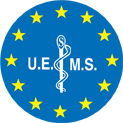
On 7th November 2012, The European Hospital and Healthcare Federation (HOPE) organised a round table addressing the issue of "Clostridium difficile" infection (CDI) and other healthcare-associated infections (HAIs).
CDI is a leading Healthcare Associated Infection in Europe and is mainly caused by the use of antibiotics, which can clear the normal 'good' bacteria from the bowel and allow the overgrowth of C. difficile.
This Round Table gathered healthcare professionals, patient organisations and aimed at raising awareness on the impact of HAI on European Healthcare systems and ways to address this issue.
Speakers presented the burden of CDI within the policy context of European action on Healthcare Acquired Infections. The Council recommendations on Patient Safety and Healthcare Associated Infections were adopted in 2009 and aimed to shed the light on this issue. The European Commission was to report on the implementation of these recommendations at the European level but to date, this report was still being elaborated.
In the course of the discussion, Prof. Mark Wilcox (Medical Microbiologist - Leeds, UK) explained that CDI caused diarrhoea, which in some cases could be severe, and was associated with significant morbidity and mortality. Although CDI could occur in the community setting, it was most common in hospitals and nursing homes. The risk of CDI was increased in people over the age of 65 years, in those using broad spectrum antibiotics, and in patients who had a prolonged period of hospitalisation. Other risk factors included pre-existing medical conditions, impaired immunity, and renal impairment. Prof. Wilcox notably pointed to the weakness of current diagnosis techniques which led to under-diagnosis of CDI.
Prof. Frédéric Barbut (Medical Microbiologist - Paris, France) presented the key measures to prevent contamination of patients by CDI but also to facilitate early detection and proactive attitude when dealing with an infection.
Despite its importance, all panellists agreed that there was limited awareness of CDI across Europe, particularly among people at risk but also among healthcare professionals.
The meeting also provided an opportunity for an interactive discussion aiming at reversing this trend while ensuring that all patients potentially at risk of CDI and healthcare professionals were properly informed and educated about the infection, as well as empowered to communicate about the risk of CDI and other harmful HAIs.
All participants of this meeting committed to increasing information available on their website with regard to CDI, as well as disseminating through their constituencies the outcome of this Round Table including future events aimed at raising awareness of CDI at the European level.
